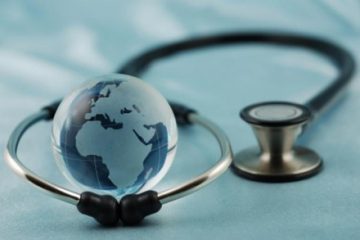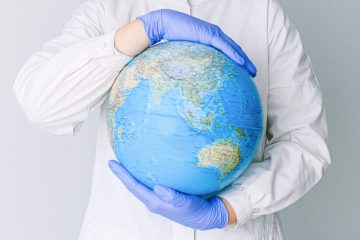Humankind is facing the overlap of two crises with unprecedented impacts on our society: COVID-19 and climate change. During the pandemic, we could witness how the lockdowns imposed worldwide decreased air pollution and greenhouse gas emissions due to reduced transportation, electricity generation, and industrial production. Both crises are global and therefore require coordinated responses by both the government and society.
During the coronavirus pandemic the president of Brazil, Jair Bolsonaro, kept discouraging the precautious measures of physical distancing and lockdown, as well as the use of masks. Also, the rate of vaccination is very slow and until now only 7.2% of the population are vaccinated from 212 million inhabitants. The president represents a huge threat for the country while cases continue to rise and have now reached the mark of 300 thousand deaths a few days ago.
About 13 million Brazilians live in the slums, making physical distancing and hygiene recommendations near to impossible to follow in these environments. The slums had to themselves organize actions to implement the COVID-19 restrictions recommendations, while the president continues with agglomerations and discordant actions during the pandemic despite the crucial role of leadership during crises, as evident from other countries.
Not different from the COVID-19 crises, climate change also needs coordinated responses by the highest level of government. The ex-president of the United States, Donald Trump, had announced during his government that the US was leaving the Paris Agreement, in which 195 nations are committed to reducing greenhouse gas emissions. Ironically, although the US may experience more hurricanes and suffer damage for agriculture and livestock, most of the impacts will be in the developing world. The fact that an important leader as the US president has left the Paris Agreement, puts in evidence actions that must be considered to contain the advance of climate change. The new president elected, Joseph R. Biden Jr., claimed in January 2021 to be part of the Agreement again on behalf of the United States.
Addressing the public health crises of climate change and COVID-19 requires more effort from multiple communities and stakeholders
Such discordant actions have a huge impact on society, especially on the most vulnerable ones: children, women, indigenous people, and people with disabilities. The pandemic has had many impacts on people around the world including, among other issues, the imposed lockdown. An unaddressed issue during this pandemic is: How to ensure that people with disabilities continue to receive the support required for their well-being, independence, and self-determination when their regular caregivers are quarantined, fall ill, and are unable to continue providing support ?
As pointed out by Catalina Devandas, a UN Special Rapporteur on the rights of persons with disabilities, noted in March 2020: “People with disabilities feel they have been left behind. Containment measures, such as social distancing and self-isolation, maybe impossible for those who rely on the support of others to eat, dress and bathe.”
COVID-19 and the climate crisis have exposed the fact that the poorest and most marginalized people in society are the ones suffering most
In both crises, we must ensure that the most vulnerable ones receive the attention, guidance and assistance they need. Also, countries must ensure that all messages and warnings are being spread in accessible formats.
It is important to understand that climate change and COVID-19 crises are connected as climate patterns change and animals and vectors adapt to this new environment, making people prone to new infections again. Society and governments need to be engaged in combating climate change globally, which will limit, if not prevent new infections. In addition, the consequences of climate change and COVID-19 are not uniform in scope or magnitude, nor in the ability of countries and communities to cope and respond.
Coordinating the responses and decisions being made now creates an opportunity to improve public health systems and create a more sustainable economic future for everyone, reducing the chances of a new pandemic.




1 Comment
Fernanda · April 9, 2021 at 3:05 pm
A very good article that brings a structured and differentiated view on aspects related to the climate and the pandemic.